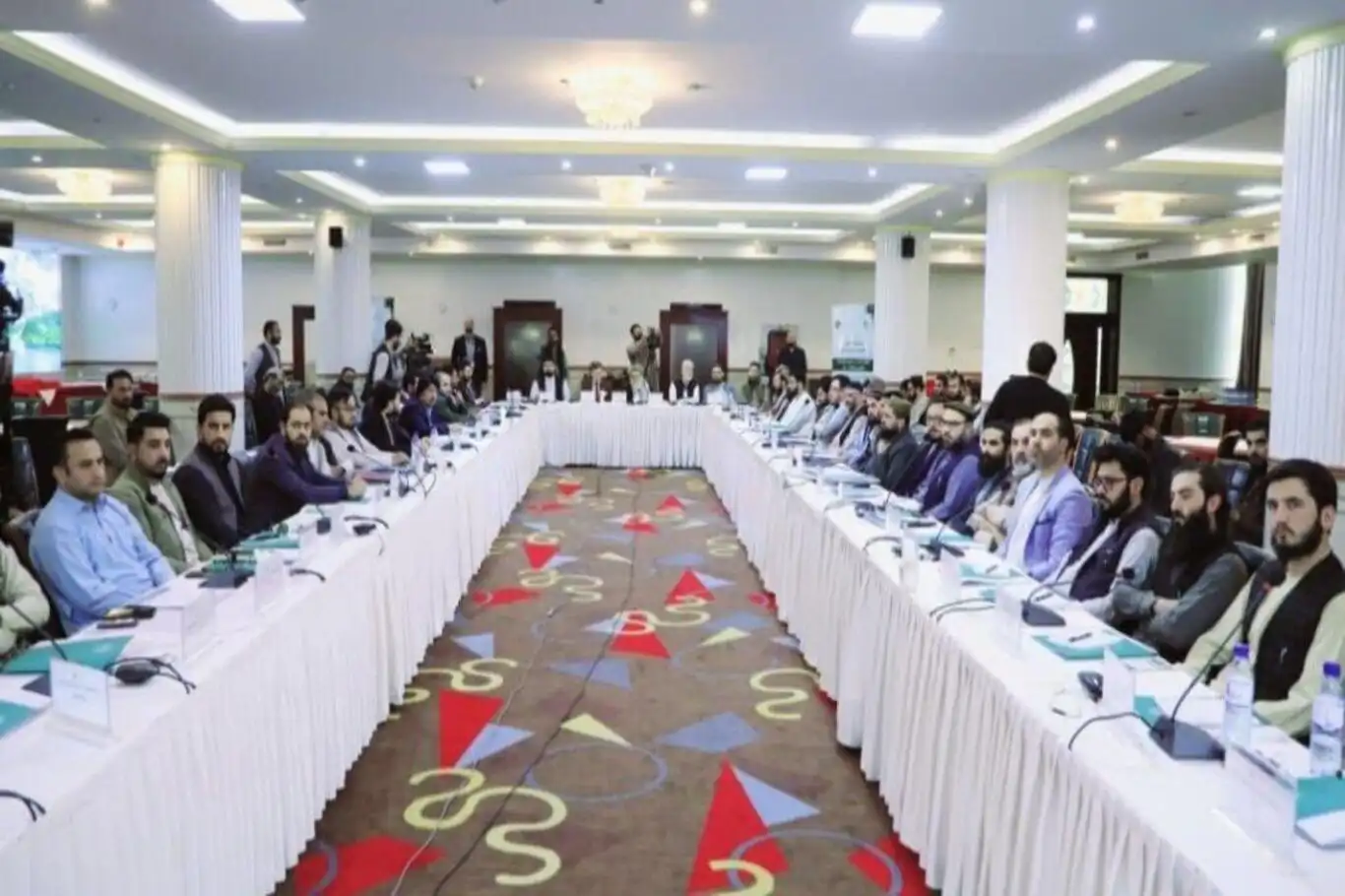Afghanistan strengthens climate coordination ahead of COP30 summit in Brazil


Afghan officials and experts convened in Kabul this week for a program titled “Afghanistan on the Path to COP30,” aimed at discussing the country’s participation in the upcoming United Nations Climate Change Conference (COP30) and defining a unified national position on environmental priorities.
The event, organized by the National Environmental Protection Agency (NEPA), brought together government representatives, environmental specialists, academics, and international partners to deliberate on Afghanistan’s role in global climate policy discussions ahead of the summit scheduled for November in Rio de Janeiro, Brazil.
Speaking at the gathering, Matiul Haq Khalis, Director General of NEPA, underscored the urgent need for inter-institutional coordination to ensure that Afghanistan’s delegation presents a coherent and representative voice at COP30.
Referring to the series of floods, droughts, and earthquakes that have struck the country in recent years, Khalis stressed that Afghanistan remains one of the countries most severely affected by climate change despite contributing minimally to global carbon emissions.
“Afghanistan is facing the severe consequences of climate change,” Khalis said. “We call on the international community not to politicize environmental issues. Our people are already paying the price for a crisis they did not create.”
He added that cooperation and mutual consultation were vital to strengthening Afghanistan’s climate position: “Participants should share opinions, listen to others, and provide information on what is needed and what should be done so that our voice at COP30 is unified.”
Representatives of several international organizations, including the European Union (EU), attended the meeting and reaffirmed their support for Afghanistan in combating the effects of climate change.
Benjamin Weiss, Head of the EU Political Section in Kabul, emphasized the bloc’s commitment to direct, community-based support.
“The European Union is focusing on direct support for communities around Afghanistan,” Weiss said. “The EU works with various organizations to ensure that its assistance reaches the people of Afghanistan in a practical and sustainable way.”
Weiss noted that ongoing EU projects in rural development, renewable energy, and water management continue to provide critical relief to Afghan communities struggling with droughts, deforestation, and food insecurity.
Environmental and academic experts participating in the event described Afghanistan’s presence at COP30 as crucial for bringing global attention to the country’s worsening ecological situation.
Umar Mokhtar Nikzad, a university professor and environmental researcher, stressed the need for strong representation: “The delegation representing Afghanistan can deliver its message and ensure we play our essential role in addressing climate change,” he said.
Experts agreed that Afghanistan should use the conference platform to seek climate adaptation funding, advocate for greater inclusion in global green finance mechanisms, and highlight the humanitarian consequences of environmental degradation.
Afghanistan faces a convergence of environmental crises, including severe droughts, flash floods, desertification, and deforestation, which have worsened poverty and forced internal displacement in several provinces. The United Nations Environment Programme (UNEP) lists Afghanistan among the top ten countries most vulnerable to climate change, largely due to weak infrastructure and limited adaptive capacity.
Despite political isolation on the international stage, Afghan authorities continue to appeal for non-politicized humanitarian and environmental engagement. NEPA officials argue that international cooperation on climate issues should remain separate from political considerations to ensure that vulnerable Afghan communities are not left behind.
The COP30 summit, to be hosted in Rio de Janeiro in November 2025, will mark the 30th anniversary of the UN Framework Convention on Climate Change (UNFCCC). It is expected to focus heavily on global adaptation efforts, climate finance, and accountability for nations most responsible for greenhouse gas emissions.
A formal Afghan delegation is expected to attend, with hopes of securing increased international support and partnerships for climate resilience projects.
As one NEPA official summarized: “Afghanistan’s message to COP30 will be simple: though our contribution to global emissions is negligible, our suffering is immense. We need solidarity, not silence.” (ILKHA)
LEGAL WARNING: All rights of the published news, photos and videos are reserved by İlke Haber Ajansı Basın Yayın San. Trade A.Ş. Under no circumstances can all or part of the news, photos and videos be used without a written contract or subscription.
As Israel's genocidal assault on Gaza grinds into its third year, leaving over 60,000 Palestinians dead—mostly women and children—and entire cities reduced to rubble, the Israeli occupation army is crumbling from within.
The Islamic Emirate of Afghanistan (IEA) announced Friday that multi-day negotiations with Pakistan, mediated by Türkiye and Qatar, have concluded with both parties agreeing to meet again to address outstanding issues.
The United Nations Relief and Works Agency for Palestine Refugees (UNRWA) has reaffirmed its commitment to providing essential humanitarian services in the Gaza Strip, despite the extremely difficult conditions facing residents.
A senior official from Yemen's Ansarullah movement has powerfully rebuked the Israeli Defense Minister's threats against Yemen, framing them as the desperate bluster of a faltering occupation regime.